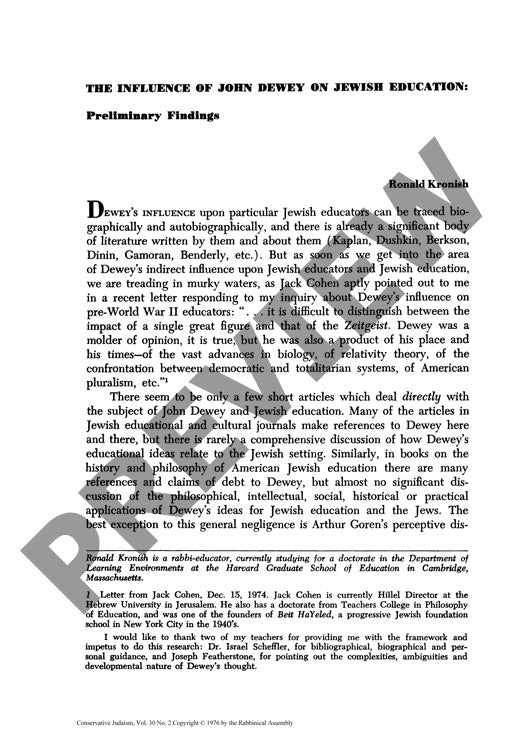The Influence of John Dewey on Jewish Ed
Couldn't load pickup availability
As American Jews grappled with questions of cultural identity and modernization in the early twentieth century, John Dewey's progressive educational philosophy emerged as a powerful force in shaping Jewish education, particularly in New York City. Through biographical and autobiographical analysis of archival materials, personal correspondence, and published works, a clear pattern emerges of Dewey's profound influence on prominent Jewish educators who studied under him at Teachers College, Columbia University from 1904 onward. Key figures such as Kaplan, Dushkin, Berkson, and Dinin found in Dewey's theories—especially his emphasis on child-centered curricula, cultural pluralism, and school-society relationships—both a framework for educational reform and intellectual justification for ethnic preservation within democratic America. These educators, primarily associated with the Bureau of Jewish Education and the Teachers Institute of the Jewish Theological Seminary, worked to translate Dewey's principles into practical applications, though implementation often proved challenging. While Dewey's theoretical impact was substantial, particularly in developing the Jewish supplementary school system and progressive educational practices, his influence resonated more strongly among Reform and Conservative Jewish educators than Orthodox practitioners. This historical analysis reveals the lasting relevance of Dewey's ideas to contemporary debates about harmonizing Jewish educational theory and practice within pluralistic democratic societies.

More Information
-
Physical Description
-
Publication Information
Published 1976
ISBN
-
Publication Credits
Ronald Kronish

